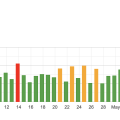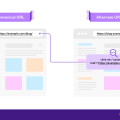Imagine if you could significantly boost your website’s visibility and increase your rankings on search engine results pages. SEO backlinking is the key to achieving this goal.
By building high-quality backlinks to your website from reputable sources, you can improve your search engine optimization (SEO) and drive more organic traffic to your site. In this article, we will explore the importance of SEO backlinking and provide you with valuable tips and strategies to effectively incorporate it into your digital marketing efforts.
Get ready to take your website’s visibility to the next level with SEO backlinking.

What is SEO Backlinking
SEO backlinking is an integral part of search engine optimization (SEO) strategies. In simple terms, it refers to the process of acquiring hyperlinks from other websites to your own site. These hyperlinks, also known as backlinks, play a crucial role in determining your website’s credibility and authority in the eyes of search engines like Google.
Definition of SEO Backlinking
SEO backlinking is the practice of obtaining links from external websites to your own site. These links act as “votes of confidence” for search engines, indicating that your website content is valuable, trustworthy, and relevant. The more high-quality backlinks you have, the higher your website is likely to rank in search engine results pages (SERPs).
Importance of SEO Backlinking
Backlinks are an important ranking factor for search engines. When search engines like Google see that your website has quality backlinks from authoritative and relevant sources, they interpret it as a signal of your website’s credibility and value. This, in turn, can lead to higher search engine rankings and increased visibility for your website.
Backlinks not only help improve your organic rankings but also drive targeted traffic to your website. When users click on a backlink and visit your site, they are more likely to be interested in your content or products, increasing the chances of conversion.
Types of Backlinks
There are various types of backlinks, each with its own characteristics and benefits. Understanding these types can help you develop a diverse and effective backlinking strategy.
Natural Backlinks
Natural backlinks are earned organically, without any intentional effort on your part. When other websites find your content valuable, they may link to it naturally. These backlinks are highly regarded by search engines because they are seen as genuine endorsements of your site’s quality. Natural backlinks are often the most valuable and can significantly contribute to your website’s rankings.
Manually Built Backlinks
Manually built backlinks are acquired through deliberate efforts, such as outreach and relationship building. This involves reaching out to other website owners, bloggers, or influencers and requesting them to link to your content. These backlinks can be valuable if obtained from authoritative and relevant sources, but it requires time and effort to build relationships and convince others to link to your site.
Self-Created Backlinks
Self-created backlinks involve adding links to your own website on various platforms, such as forums, blog comments, or online directories. While these backlinks can be easy to create, they are generally of lower quality and may not provide significant SEO benefits. Search engines have become more sophisticated in detecting self-created backlinks, and they may not carry as much weight as other types.
Editorial Backlinks
Editorial backlinks are links that are given naturally by bloggers, journalists, or editors who find your content valuable and choose to reference it in their own articles or publications. These backlinks often come from reputable, high-authority websites, making them highly valuable for SEO purposes.
Guest Blogging Backlinks
Guest blogging involves creating content for other websites and including a backlink to your own site within the article. This not only helps build relationships and establish your expertise in the industry but also provides an opportunity to gain valuable backlinks from authoritative sources.
How SEO Backlinking Works
To understand how SEO backlinking works, it’s essential to grasp the fundamental concepts involved in the process.
Crawling and Indexing
Search engines employ web crawlers, also known as spiders or bots, to navigate the internet and discover new web pages. These crawlers follow links from one page to another, collecting information about each page they encounter. Once a page is crawled, it is added to the search engine’s index, making it eligible to appear in search results.
Link Equity
Link equity, also known as “link juice,” refers to the value or authority passed from one page to another through hyperlinks. When a high-quality and authoritative website links to your page, it passes a portion of its link equity to your site. The more link equity your site receives, the more influential your site becomes in search engine rankings.
Anchor Text
Anchor text is the visible and clickable text within a hyperlink. Search engines use anchor text as a signal to determine the relevance and topic of the linked page. Optimizing anchor text with relevant keywords can help search engines understand the content and context of the linked page, boosting its visibility and rankings.
Relevance and Authority
Search engines consider both the relevance and authority of backlinks when ranking websites. Relevance refers to how closely the content of the linking page aligns with your own content. The more relevant the link, the more valuable it is in the eyes of search engines. Authority, on the other hand, refers to the credibility and trustworthiness of the linking website. Links from high-authority websites are seen as more influential and can have a greater impact on your rankings.
Benefits of SEO Backlinking
Effective SEO backlinking can provide several benefits for your website, ultimately leading to improved organic rankings, increased traffic, enhanced domain authority, and greater brand visibility.
Improved Organic Rankings
One of the primary benefits of SEO backlinking is its impact on organic rankings. When your website earns high-quality backlinks from authoritative and relevant sources, search engines perceive it as a credible and valuable resource. This can positively influence your search engine rankings, making your website more visible to potential visitors.
Increased Website Traffic
Backlinks can drive targeted traffic to your website. When users come across a backlink from a trusted source, they are likely to click on it to find more information. This can result in a steady stream of visitors who are genuinely interested in your content or products, increasing the likelihood of conversions.
Enhanced Domain Authority
Domain authority is a metric used to gauge the overall authority and credibility of a website. High-quality backlinks from authoritative websites can significantly impact your domain authority, establishing your website as a reliable source of information. A higher domain authority can make it easier for your pages to rank well in search engine results and attract more organic traffic.
Brand Visibility and Exposure
When your website earns backlinks from reputable sources, it not only boosts your search engine rankings but also increases your brand’s visibility. Your brand name and website URL appearing on prominent sites can raise awareness and expose your business to a wider audience. This can lead to more brand recognition and potentially attract new customers or clients.
Factors to Consider for Effective Backlinking
When implementing a backlinking strategy, it’s crucial to consider several factors to ensure effectiveness and positive outcomes.
Quality of Backlinks
The quality of backlinks is far more important than quantity. Focus on earning backlinks from trusted and authoritative websites that are relevant to your niche or industry. A few high-quality backlinks from reputable sources can have a more significant impact on your rankings than numerous low-quality backlinks.
Relevance of Backlinks
Ensure that the websites linking to your site are relevant to your content or industry. Backlinks from unrelated or irrelevant sources may not provide the same value and could even be detrimental to your SEO efforts. Seek out websites that share similar topics or target a similar audience to maximize the relevance of your backlinks.
Authority of the Linking Site
The authority of the linking website plays a crucial role in determining the value of the backlink. Websites with higher domain authority and trustworthiness can pass more link equity to your site, positively impacting your rankings. Consider factors such as the site’s reputation, traffic, and credibility when choosing link opportunities.
Anchor Text Optimization
Optimize your anchor text to include relevant keywords or descriptive phrases. This can help search engines understand the context and relevance of the linked page. However, it’s essential to maintain a natural and balanced anchor text distribution to avoid over-optimization, which can be seen as spammy by search engines.
Diversity of Backlinks
A diverse backlink profile is essential for a robust and natural link profile. Aim for a mix of different types of backlinks, including natural, editorial, and guest blogging backlinks. A diverse link profile showcases the credibility and authority of your website and helps mitigate the risk of being penalized by search engines for an unnatural link pattern.
Natural Link Profile
Consistency and gradual growth are key aspects of a natural link profile. Building too many backlinks within a short period or acquiring a sudden influx of backlinks can raise suspicion with search engines. Aim for a steady and organic growth of backlinks over time to maintain a natural link profile.
Best Practices for SEO Backlinking
To make the most of your SEO backlinking efforts, consider implementing the following best practices:
Create High-Quality Content
Creating high-quality and valuable content is crucial for attracting natural backlinks. Focus on producing informative, engaging, and unique content that others in your industry will find valuable enough to link to. Quality content naturally attracts backlinks and establishes your website as an authoritative resource.
Outreach and Relationship Building
Reach out to other website owners, bloggers, and influencers in your industry to build relationships and gain backlink opportunities. Personalized outreach emails or social media messages can be effective in persuading others to link to your content. Building strong relationships can lead to ongoing backlink opportunities and collaborations.
Guest Blogging
Guest blogging is an effective way to gain high-quality backlinks while also establishing your expertise and increasing your brand exposure. Find authoritative websites or blogs in your niche that accept guest posts, and contribute well-written, insightful articles. Include a backlink to your own site within the guest post, and you can benefit from both increased traffic and an SEO boost.
Social Media Promotion
Leverage social media platforms to promote your content and gain exposure. By sharing your content on social media, you increase the chances of it being seen and shared by others in your industry. This can lead to potential backlink opportunities as others discover and reference your valuable content.
Monitor and Disavow Toxic Backlinks
Regularly monitor your backlink profile to identify any toxic or harmful backlinks. Toxic backlinks can come from spammy or low-quality websites and can negatively impact your SEO efforts. Use tools like Google Search Console or third-party backlink analysis tools to identify and disavow such backlinks, ensuring that they don’t harm your website’s rankings.
Common Mistakes to Avoid in Backlinking
To avoid potential pitfalls and negative consequences, steer clear of the following common mistakes in backlinking:
Buying Backlinks
Buying backlinks is against Google’s guidelines and can severely damage your website’s rankings. Paid backlinks are often low-quality and irrelevant, posing a risk to your SEO efforts. Focus on earning high-quality backlinks naturally through valuable content and relationship building instead.
Low-Quality or Irrelevant Backlinks
Not all backlinks are created equal. Backlinks from low-quality or irrelevant websites can have a detrimental effect on your SEO. Avoid acquiring backlinks from link farms, spammy directories, or unrelated websites, as search engines may penalize your site for participating in manipulative linking practices.
Over-optimized Anchor Text
Over-optimizing your anchor text by stuffing it with keywords can result in a penalty from search engines. Aim for a natural and varied distribution of anchor texts that reflects the topic and context of the linked page. This helps provide a better user experience and avoids triggering search engine spam filters.
Ignoring Link Diversity
Focusing too much on a single type of backlink, such as guest blogging, can lead to an unnatural link profile. Aim for a diverse range of backlinks, including natural links, editorial links, and links from various sources. This diversity showcases the credibility and value of your website to search engines.
Not Monitoring Backlink Profile
Regularly monitoring your backlink profile is essential to identify and address any issues promptly. Keep track of new backlinks, changes in rankings, and any toxic or spammy backlinks. Proactively addressing issues can help maintain a healthy backlink profile and preserve your website’s rankings.
Tools and Resources for Backlink Analysis
Several tools and resources are available to help analyze and monitor your backlink profile. These include:
Google Search Console
Google Search Console provides valuable insights into your website’s performance in search engine rankings, including the number of backlinks, impressions, and clicks. It also alerts you to any issues with your backlinks, such as toxic or broken links.
Ahrefs
Ahrefs is a popular SEO tool that offers comprehensive backlink analysis. It provides detailed information about your backlink profile, including the number of referring domains, anchor text distribution, and link quality. Ahrefs also offers competitor analysis and keyword research capabilities.
Moz
Moz offers a range of SEO tools, including a backlink analysis tool called Moz Link Explorer. It provides information on your backlink profile, such as domain authority, spam score, and top linking domains. Moz also offers other SEO features like rank tracking and keyword research tools.
SEMrush
SEMrush is an all-in-one SEO tool that includes backlink analysis features. It provides insights into your backlink profile, such as the number of backlinks, referring domains, and anchor text. SEMrush also offers keyword research, site audit, and competitive analysis capabilities.
Backlink Checker
Backlink Checker is a dedicated tool for analyzing and checking backlinks. It provides data on the number of backlinks, referring domains, anchor text, and link quality. Backlink Checker also offers insights into your competitors’ backlink profiles and allows you to track your backlink progress over time.
Future of SEO Backlinking
As search engine algorithms continue to evolve, the future of SEO backlinking is likely to see several developments and trends.
Evolution of Link Algorithm
Search engines will continue to refine their link algorithms to better assess the quality, relevance, and trustworthiness of backlinks. This means that acquiring high-quality and authoritative backlinks will remain important for SEO success.
Importance of User Signals
User signals, such as click-through rates, time on site, and bounce rates, are increasingly being considered by search engines when evaluating websites. Backlinks that drive high-quality traffic and engage users are likely to carry more weight and influence rankings in the future.
Artificial Intelligence in Backlink Analysis
The use of artificial intelligence (AI) in backlink analysis is expected to grow. AI can help analyze large amounts of data, identify patterns, and provide more accurate insights into the quality and relevance of backlinks. This can help improve the efficiency and effectiveness of backlink analysis.
Trustworthiness and Reputation Signals
Trustworthiness and reputation signals are expected to play a more significant role in backlink analysis. Search engines will likely rely more on signals such as user reviews, social media mentions, and online reputation to assess the credibility and reliability of backlinks.
Conclusion
SEO backlinking is a vital component of any comprehensive SEO strategy. Understanding how backlinks work, the different types of backlinks available, and the factors to consider when earning backlinks can help you develop an effective backlinking plan.
By focusing on high-quality content, building relationships, leveraging guest blogging opportunities, and monitoring your backlink profile, you can enhance your website’s organic rankings, increase targeted traffic, establish domain authority, and boost brand visibility.
Although the future of backlinking may see advancements in algorithms, user signals, and AI, earning authoritative and relevant backlinks will continue to be an essential aspect of SEO success.











